‘Our Future Health can open the bottleneck for health research SMEs’
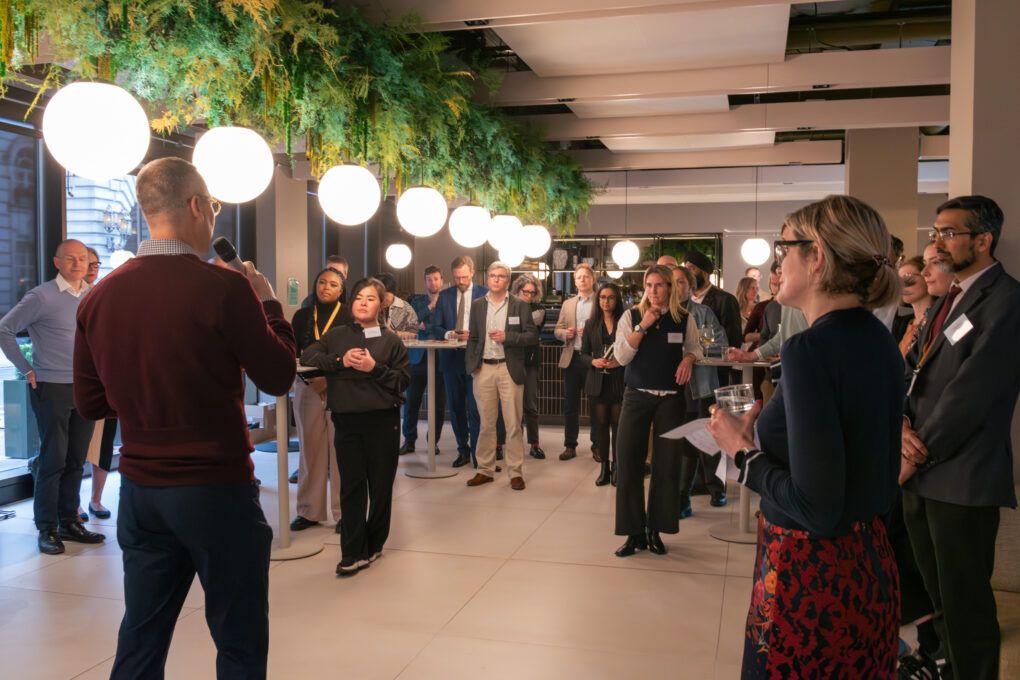
It’s 4:45pm on a Thursday and people are already starting to arrive at our networking event in Holborn, London.
Coats and laptop bags are stowed, nametags are pinned, and a hum of conversation rises. The room is filled with guests from more than 15 small and medium-sized enterprises (SMEs). They’re here to learn about what they can do with our data set.
Chief Business Officer at Our Future Health, Andrew Miles, kicks the conversation off with a warm welcome – and a bold statement.
“Our Future Health is a once-in-a-generation initiative,” he says. “SMEs are key to advancing healthcare. Your ability to innovate, test new ideas, and scale up research will contribute hugely to the improvement of health in the UK – and beyond.”
As guests jostle together to hear more, the mic is passed to our Executive Director of Researcher Data and Product, Kate Evans. She introduces a panel of representatives from three SMEs who are already working with us through our SME Early Adopter Programme.
Hurdle’s Daniel Martin-Herranz, OutSee’s James Peach, and Pheiron’s Jakob Steinfeldt take to the floor and share how they hope to use our data in their research – and why they believe SMEs should be excited about Our Future Health.
‘Our Future Health will help us to unlock new discoveries’
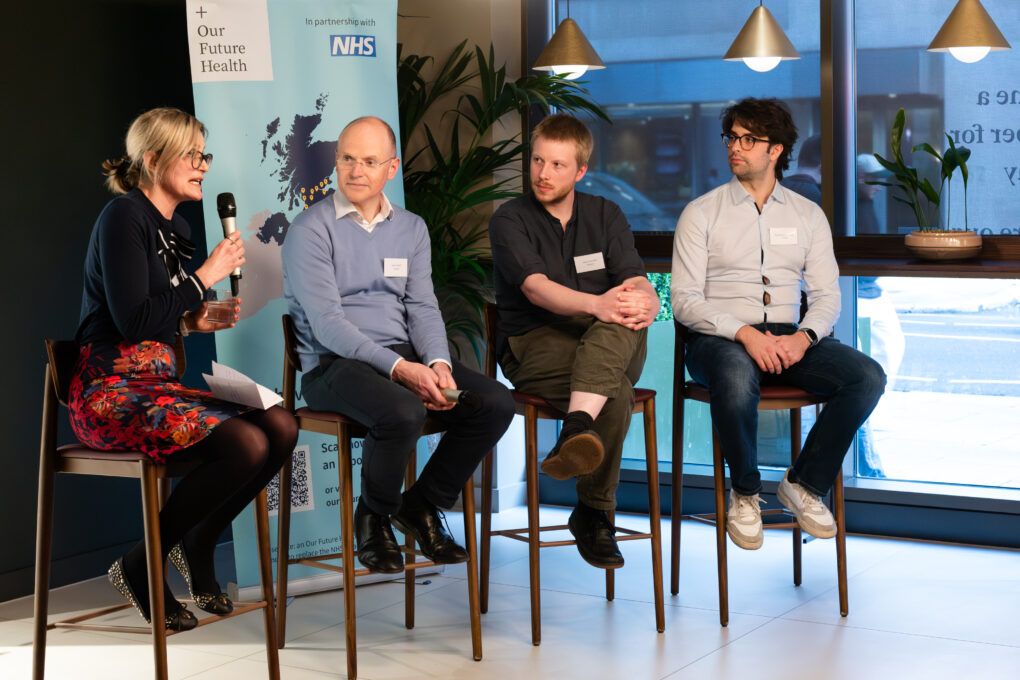
Daniel Martin-Herranz is the co-founder and Chief Scientific Officer at Hurdle. He explains how his team will use our data in their research.
“We are a start-up on a mission to give access to diagnostics anywhere, anytime, to anyone,” he says. “We’ve built a platform to accelerate the discovery of new biomarkers – and we want to use Our Future Health’s data to improve how we do this. We hope to take our innovations and launch them into the real world.
“The fact that Our Future Health is the world’s largest prospective cohort is huge for us. It’s also very diverse – we cannot underestimate the value of that.”
Daniel says that the size and breadth of our cohort means organisations like his can easily test their hypotheses. “Let’s say we discover a new biomarker that enables precision medicine within a particular therapeutic area. We must run trials to demonstrate its efficacy in different populations, or over a longer period of time.
“At the moment, we don’t have the resource to do that and it’s a major bottleneck for us. It hinders innovation. Our Future Health changes all that. We can study specific populations at scale – and in the future we can re-contact people for further studies.
“The programme is going to unlock a lot of new discoveries. That’s why there’s so much energy in the room today. This is something big and new.”
‘One thing that’s so exciting about Our Future Health is its enormous scale’
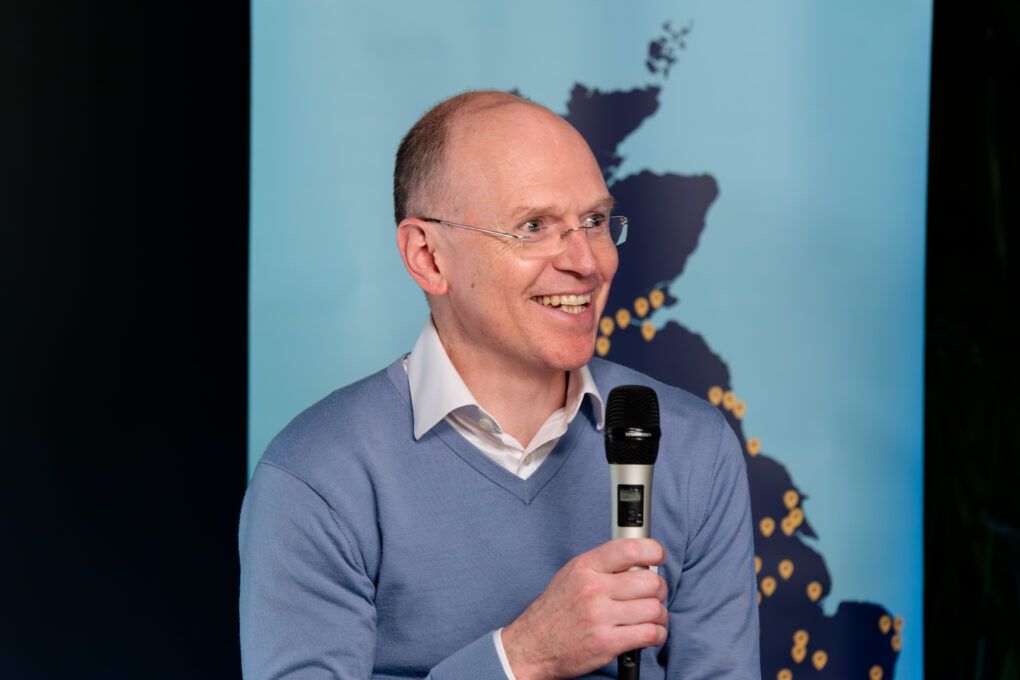
James Peach, Chief Operating Officer at OutSee, a genetic analysis company, explains how his organisation will be looking at our participants’ genetic data to search for new signs that could be useful to treat existing diseases.
“To do this, we take our predictive AI technology, Nomaly, and put it into ‘containers’ inside the secure data environment that holds the data,” he says.
“Nomaly will identify which individuals within the data have an unexpected or undiscovered genetic link to a disease. We then use that target or mechanism to discover and stratify new treatments.
“We’re enthusiastic about the size and quality of the data. There’s been a great deal of quality control, both on the genetic and clinical side, so OutSee doesn’t have worries about that.
“Our Future Health is a huge endeavour and we want to show how useful the data is for patients. To other SME researchers, I would say that the Early Adopter programme is open so ‘come in and come in quickly’.”
‘There is an immense amount of possibility in recall’
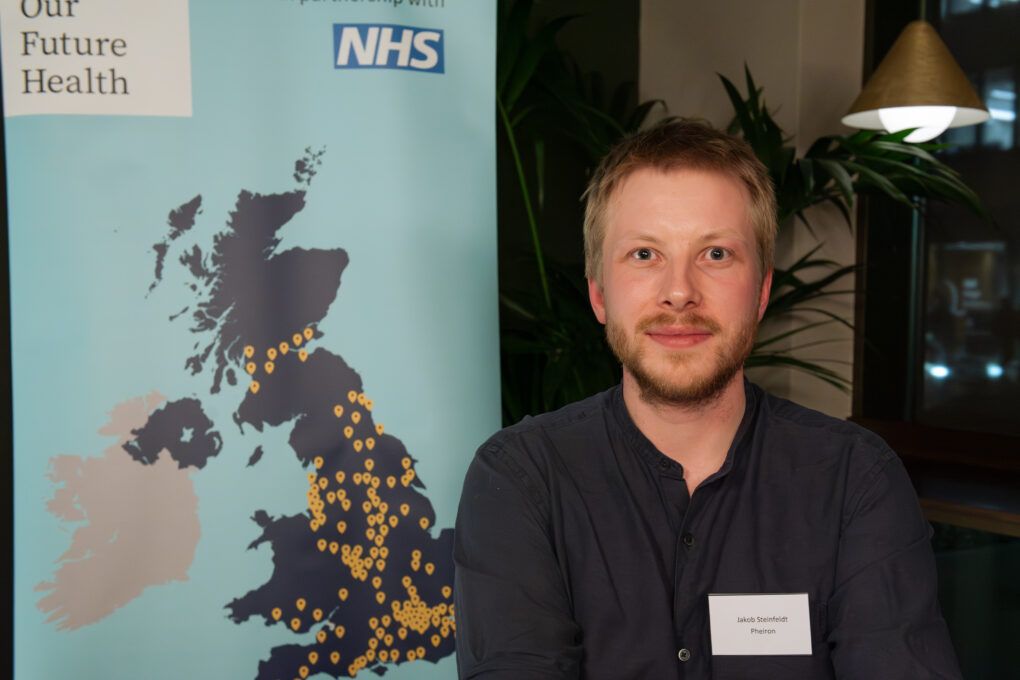
Co-founder and CSO at Pheiron, Jakob Steinfeldt, speaks of his excitement around the potential to re-contact participants for additional studies in the future.
“Pheiron is an AI native techbio company built on decades of experience in epidemiology, genetics, and AI. Our aim is to make vital medicines available to patients everywhere by increasing the chance that drugs make it from the early hypotheses into the clinic.
“We integrate billions of data points from biomedical data across diverse population cohorts – including Our Future Health. Our core focus is on understanding the real-world health trajectories of the participants and how their genetic makeup impacts them. This helps us build evidence on new drug targets and how to bring these drugs best to patients in need.
“I think other SMEs should be particularly interested in the recall aspect of Our Future Health. It holds an immense amount of potential.
“Imagine what we can do with a more deeply characterised study of this scale, having the chance to recall just the right individuals, and translating that into the way trials are designed, and treatments are allocated in the future. The results will be transformational.”
Important innovators
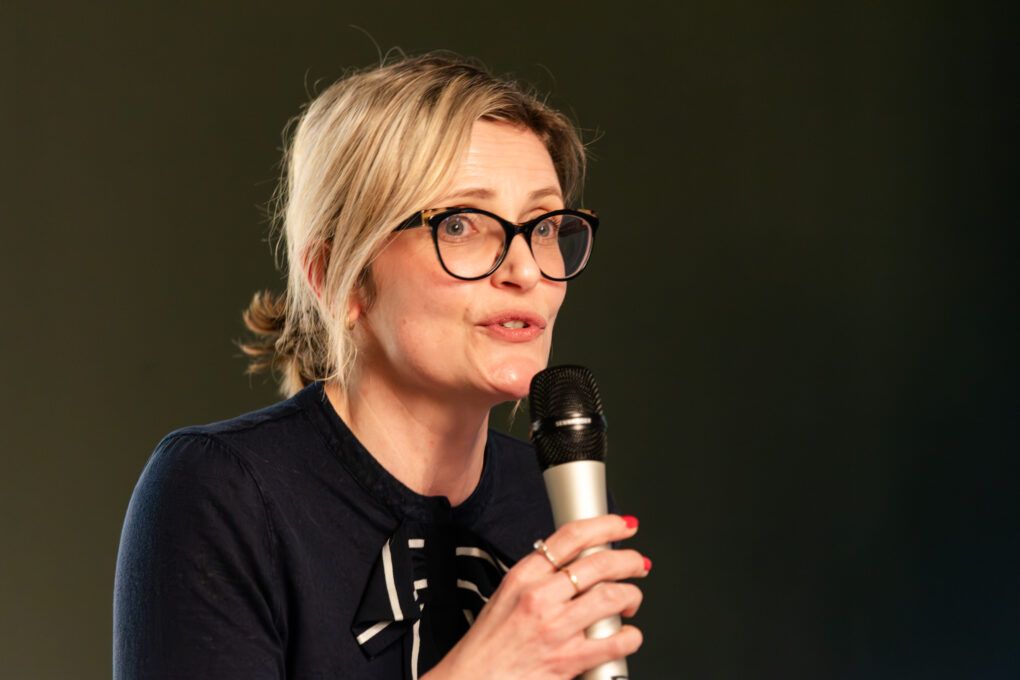
Kate Evans chaired the panel at the event. Her message to the room underlines our experts’ enthusiasm.
“We want to create a community of changemakers who will collaborate on research that enables people to live longer, healthier lives,” said Kate. “Engaging with start-ups and SMEs is a key part of this.
“Our Future Health is still in the early stages of this journey. There’s a lot we need to learn from them to improve our core products, so that we can really accelerate the vital research conducted by this community. That’s why we recently launched our SME Early Adopter programme. It enables us to work with selected organisations in return for their feedback and guidance on how we can further refine our programme.
“The SME sector is of huge importance to Our Future Health. We believe it is where a lot of the innovation and new diagnostics will come from.”
How SMEs can access Our Future Health’s data
To find out more about how your organisation can apply to access our data, visit research.ourfuturehealth.org.uk/access-for-smes/.
To express your interest in our Early Adopter Programme, please email sme@ourfuturehealth.org.uk.

Let’s prevent disease together
By volunteering for Our Future Health, you can help health researchers discover new ways to prevent, detect and treat common conditions such as diabetes, cancer, heart disease, stroke and Alzheimer’s.